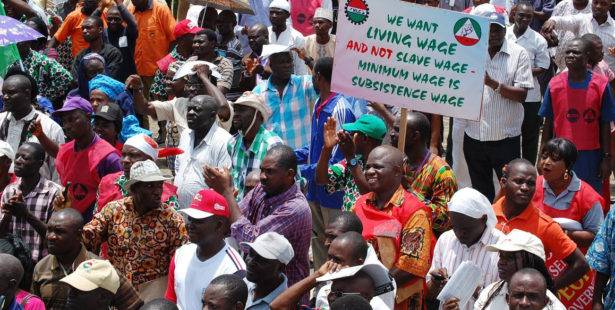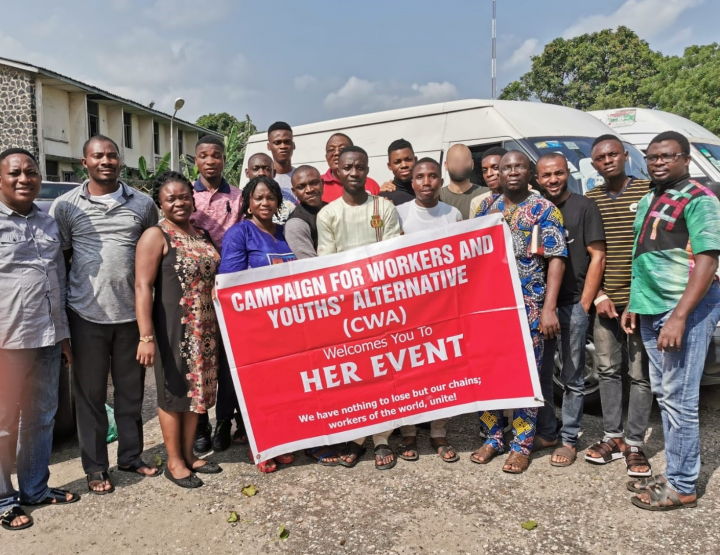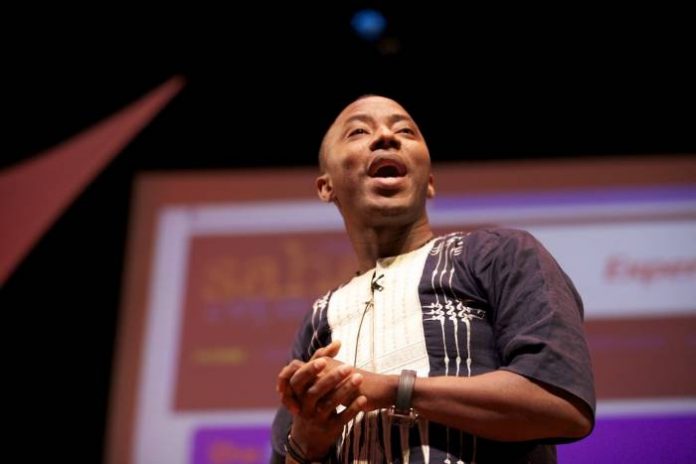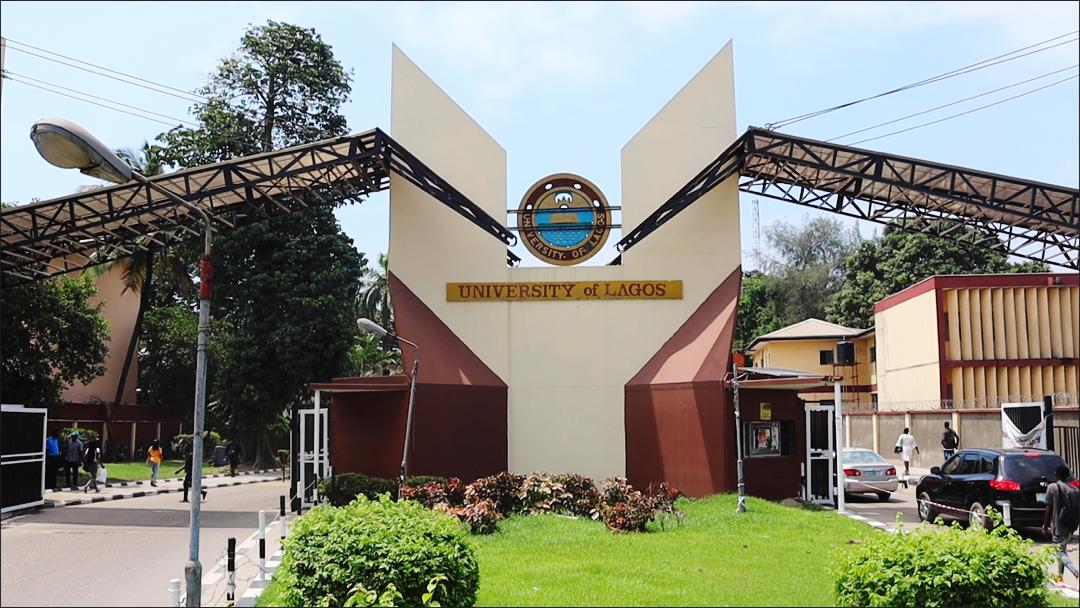Ola Kazeem, 09 August 2019.
On Saturday 27 July, the African Action Congress (AAC), led by former presidential candidate Omoyele Sowore, called Nigerians to a revolution, to take place on 5 August. This has predictably gained the attention of the ruling class as well as a layer of radicalised youth.
Posing the need for revolution, however, has to be done in a serious manner. It is also important to understand what a revolution is. In recent years we have had several examples of so-called “revolutions”, which have not led to the desired intentions of the masses. Indeed, we have seen “revolutions” that have in effect been their opposites, achieving nothing for the working people and merely benefitting one wing of the ruling class. So let us look at what we mean by revolution.
A genuine revolution does not merely change the faces of those in government, it radically changes the power set up, not just political power but economic power. It uproots the economic system, placing the material resources of the country under the control of those who actually produce the wealth, i.e. the workers and peasants.
Leon Trotsky, who led a genuine social revolution in 1917, posed a fundamental question: what is a revolution? And he answers the question in the following way:
“The most indubitable feature of a revolution is the direct interference of the masses in historical events. In ordinary times the state, be it monarchical or democratic, elevates itself above the nation, and history is made by specialists in that line of business – kings, ministers, bureaucrats, parliamentarians, journalists. But at those crucial moments when the old order becomes no longer endurable to the masses, they break over the barriers excluding them from the political arena, sweep aside their traditional representatives, and create by their own interference the initial groundwork for a new regime.”

And he continues: “The history of a revolution is for us first of all a history of the forcible entrance of the masses into the realm of rulership over their own destiny.”
All of the conditions for such an event are being prepared in Nigeria today. In its editorial of 13 November 2018, Punch newspaper gave a graphic picture of the situation faced by Nigerian youth:
“In the corridors of power, there is no lack of awareness of the reality; doing the right thing to change the narrative, however, is an insurmountable hurdle. The forum at which Adesola spoke was a job creation policy initiative jointly organised by the ministry and the International Labour Organisation in Abuja; a few days earlier, in Ibadan, Oyo State, Osinbajo had bemoaned the prevailing high rate of teen joblessness and declared that only through job creation for its youths could a nation truly develop. Question is: since this administration took office 41 months ago, what is its record in job creation and productivity?
“Very dismal. Indeed, so poor that youth unemployment rose to 52.65 per cent by Q4 2017, from 49.7 per cent in the preceding quarter, which translates to 22.64 million persons aged between 15 and 35 years’ old who were either jobless or underemployed, according to the National Bureau of Statistics. Its data showed that 7.9 million jobs were lost January 2016 to September 2017; some four out of 10 Nigerians are jobless or underemployed; …The gravity of the problem is revealed in the reality that over 54 percent of Nigeria’s rising population of 197 million are below age 35.”
According to an estimate, 500,000 fresh graduates from our institutions of higher learning join the market yearly, and this unfortunate situation only keeps getting worse. A week hardly passes without news of suicide among the youth. Most unfortunately, the rate of suicide is higher among the Higher Institution students, especially the about-to graduate among them. As they look at the future, rather than feel a sense of relief that passing out of school is supposed to give, the fear and frustration only increase as they approach the end of their academic life.
Social explosion building
The youth, making up the majority of the population, are the spearhead of this process at this particular time. But as all experience shows, the youth are merely the most sensitive indicator of wider social processes. Throughout Nigerian society today, tensions are reaching boiling point, as the masses become increasingly desperate. The Nigerian ruling class is not only incapable of providing even the bare necessities of life for the majority of the population, it is constantly pushing the masses even below their present barbaric living conditions. The ruling class is aware that the present conditions could lead to a social explosion.
Therefore, when about three weeks ago, Sowore threw the “#RevolutionNow” slogan into the public, the chains of drama that followed should not be a major surprise to anyone. Sowore did not stop at mere sloganeering, he went ahead to declare a day for the commencement of “Nigeria Revolution”, and 5 August was announced as the day.
The response of the Government revealed just how weakened the Buhari regime has become after about four years of continuous privatisation and commercialisation, and the attendant widening of the gap between the rich and poor. This regime’s social base has been significantly eroded. The regime is unstable and can feel the anger of the masses that pervades the land. The regime feared that Sowore’s call would gain an echo, in particular amongst the angry youth around the country.
So on Saturday 3 August, two days before Sowore’s “Revolution” was supposed to take off, the State Security Service stormed Sowore’s residence at about 1.00am, in the dead of the night and in commando style whisked him away. The choice of this hour is a reflection of the enormous fear of the regime that during the day, the arrest may have been too difficult to effect.
On 5 August there were pockets of protest, mainly in the Southern part of the country, despite the earlier arrest of the movement Leader. The response of the Police was very quick and brutal against this handful of protesters who dared to come out. Scores were arrested and many brutalised as the number of police and army drafted to the scenes of protest, outnumbered the protesters themselves. Those arrested are still in police custody as we write.
We demand the immediate and unconditional release of Sowore and all the others involved in the protest. The recent court pronouncement which granted the Secret Police the authority to detain Sowore for another 45 days shows how callous and merciless the state can be when it has to protect itself and why we need to fully prepare for a major onslaught. The court, as we can see in this instance, is just an instrument of oppression in a class society. The arrests and brutal treatment of those arrested expose how much the fear of revolution haunts this regime. Looking around at Algeria, Sudan and even Liberia, the regime can see that similar conditions that exist in Nigeria have created powerful revolutionary movements.

Revolution a necessity – but it must be built for
The 5 August date did not go unnoticed, despite the small size of the protesters. Between Saturday 5 August and 6 Tuesday, the single most-talked-about word in Nigeria was REVOLUTION. According to Google Trending search analysis, the word Revolution became the most-searched-for word in Nigeria on 5, August; with Oyo State leading the number of searches, followed by Port-Harcourt. Meanwhile, the ruling elite swung in with all the media apparatus available to them, to malign, confuse and scandalise the word revolution.
For now, the ruling class can breathe a sigh of relief, but all of its intelligent elements know that nothing has been solved. Nigerian society is at a complete dead end. Revolution is not merely desirable, it is a necessity. Just like the ruling class is clearly preparing itself for what is to come, so should the Marxists. Therefore, as we await the fast-approaching social explosion, it is very important that we draw crucial lessons from this particular event, so as to adequately prepare ourselves for the future.
- We support a call for revolution. As Marxists we also call for revolution, but we understand that no one can fix a date for a revolution. In particular, that is true for a small organisation with very little support amongst the working masses. Calling for a revolution under such circumstances ends up being pure adventurism, as the ground had not been prepared. A call for revolution that has not been systematically prepared for beforehand can lead to frustration among a certain layer of the youth who are looking to the Sowore movement, as we saw in the last election outcome which led to demoralisation of a certain layer of youths who are looking up to Sowore. This time around the disappointment could be even bigger when the young people around Sowore realise that a Revolution is not taking place. Even worse, however, is that this call has completely isolated some of the most radical youth from the broad layers of the masses and put them at the mercy of the state apparatus which can now come down heavily on them. As Alan Woods explains: “The masses will move exactly when they are ready, not a minute earlier nor a minute later”. No doubt, the situation is fast changing in a revolutionary direction. Nonetheless, to confuse the first month of pregnancy with the ninth is a serious mistake, it will not lead to birth, but painful abortion. Under no circumstances must we substitute our consciousness for the consciousness of the masses. Masses learn from their day-to-day experiences. The task of the Marxists is to follow this process and recognise when it has come to a critical point. In the meantime we must prepare the best elements amongst the youth and the workers by educating them in the ideas and methods of revolutionary Marxism. Revolution cannot be sucked out of one’s thumb. It comes about when the masses have reached a critical point and are ready to move. And it also requires a revolutionary leadership which has won the confidence of the wider masses.
- We should recall that immediately after the January 2012 mass protest, the word revolution became a household word. A wing of the Nigerian ruling elite cynically latched on to this and echoed the word along with the masses. It was only in 2014 that Tinubu (one of the more astute strategists of the ruling elite), eventually concretised the kind of revolution they were describing, he said it was a “Common Sense Revolution”. This shows that the very word revolution on its own can be made into an abstraction. What sort of revolution we are waging is the key. Without very clear, sharp and bold slogans, based on class differences, based on the idea that the rich and powerful must be expropriated, those mobilising for the revolution may find it difficult to break the strong barriers of religion and ethnicity which, in the final analysis, are the shields the Nigerian ruling elite always hide behind. Only a socialist revolution, that tackles the concrete questions of jobs, wages, housing, education and healthcare, can overcome the web of contradictions that crisscross Nigerian society; and unite the workers, peasants and youth of all ethnicities. The most fundamental problems of this society cannot be solved on the basis of capitalism. This has to be boldly stated; the vague call for “Revolution” is what gave room for Atiku and other PDP thieves to sign-in to this ongoing call. If there was a call for a genuine revolution – that is, one which actually threatened the rule of the capitalist class in society – we would immediately see the ruling elite pack themselves on one side and we would see a united force of the oppressed on the other side. It is also revealing that orange is the official colour of this so-called revolution, a colour which was used by the right-wing and CIA supported forces to lean on mass movements against the government in Ukraine, which at that time was close to Putin’s Russia. As we know, the result of the Orange Revolution in Ukraine was far from the downfall of the capitalist system in that country. On the contrary, it merely strengthened one wing of the oligarchy: the pro-Western wing.
- If there is one important lesson we can draw from all the recent revolutions of the masses, from the Egyptian Revolution of 2011, the Bukinababes Revolution of 2014, up to the recent Sudanese Revolution of this year, it is that the problem of leadership of the revolution has not been solved. The masses will move when they are ready to move. That should be far from being our main concern. After all, Nigerians massively moved heroically in 2012, but the issue everywhere is, if they move, is there a revolutionary leadership to lead them to revolutionary victory? By revolutionary leadership we do not mean a Messiah, a hero-worshipped individual. By leadership in the present epoch, we mean revolutionary organisation: the organisation of cadres, who are trained in the Marxist tradition and Marxist methods, who have well prepared themselves in organisation, for eventual breakout of class conflict between the haves and have-nots. As Trotsky once remarked: “The crisis of humanity can be reduced in the final analysis, to the crisis of leadership of the working class”.
This necessary revolutionary organisation is still very weak nationally. Meanwhile, the ruling elite has less and less room to manoeuvre faced with the rising anger of the masses. This will lead to an extremely turbulent period, with many ebbs and flows. The masses will have to go through many painful experiences and test out many accidental figures and organisations on their path. We also want to see an end to the present corrupt regime, but we are not prepared to take part in fooling the masses that there is another kind of capitalism, a clean, uncorrupt capitalism that operates in the interests of the working masses. No such capitalism can ever exist. So long as you have capitalism, you will have rich and poor, bosses and workers, oppressors and oppressed.
This lack of a working-class based revolutionary socialist leadership is the main reason why the revolutionary process in the next period will have a prolonged character. There will be many starts and stops, periods of joyous advance and painful retreat, highly inspiring victories and demoralising defeats. But through it all, the workers will learn, and we will steel and expand our forces. We must prepare the rank and file for this, because it is on this that the real success can be won.





